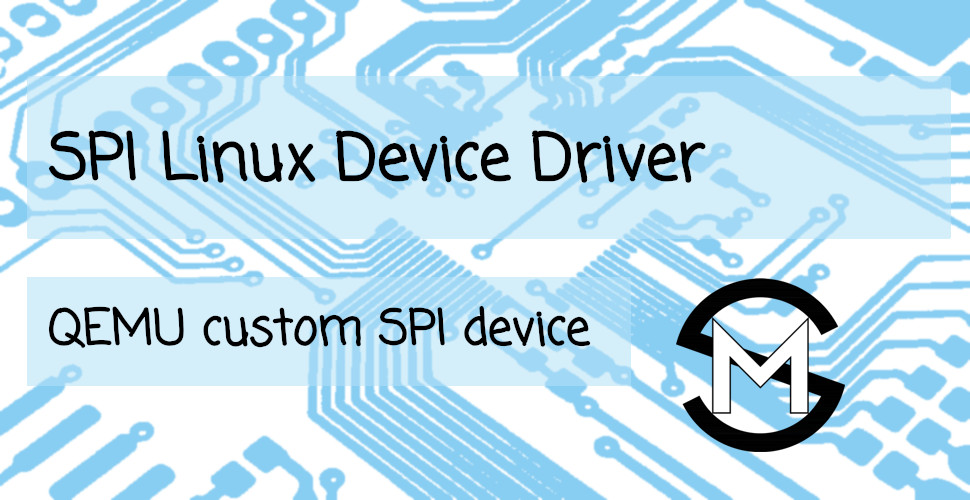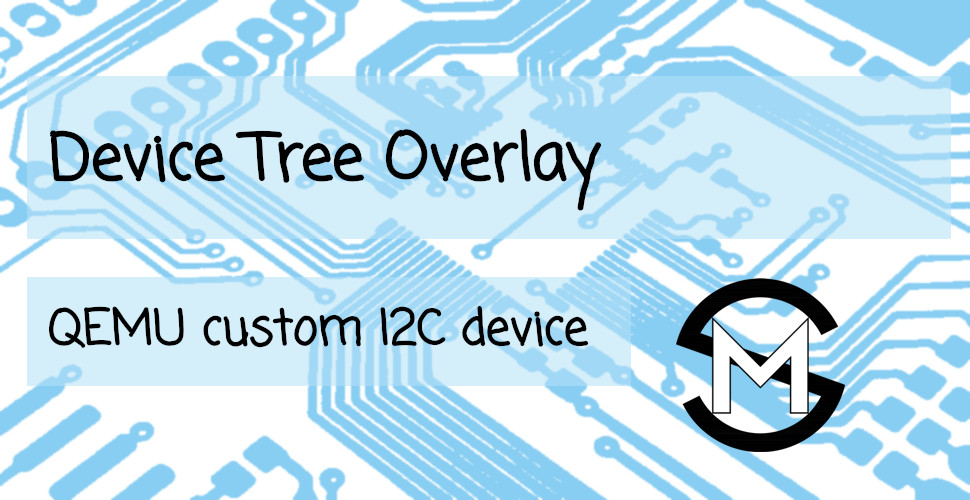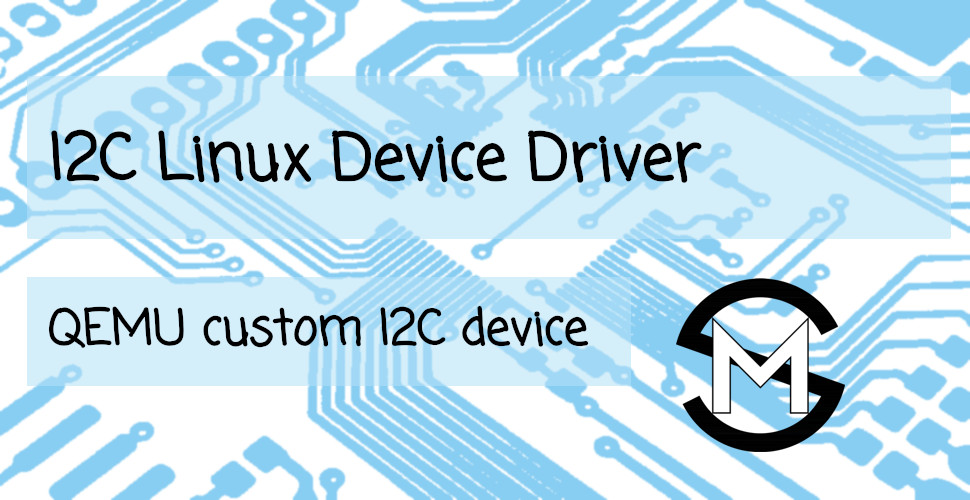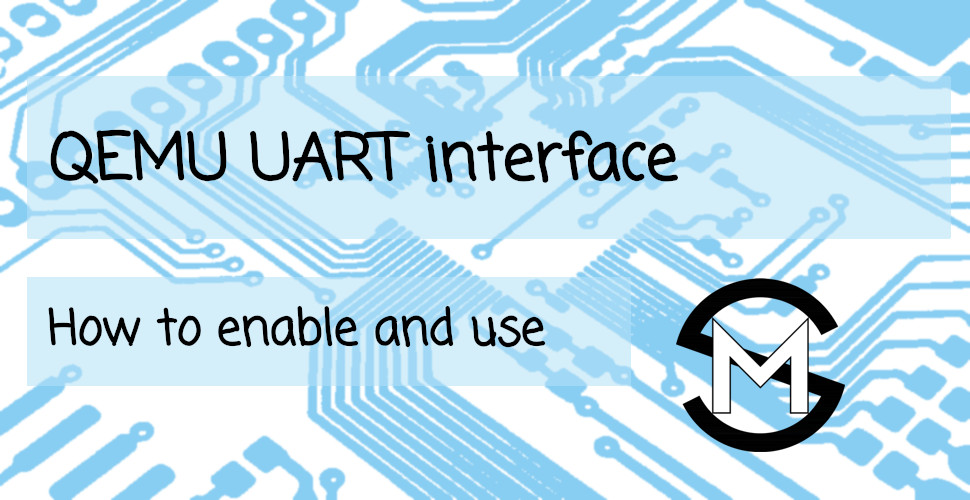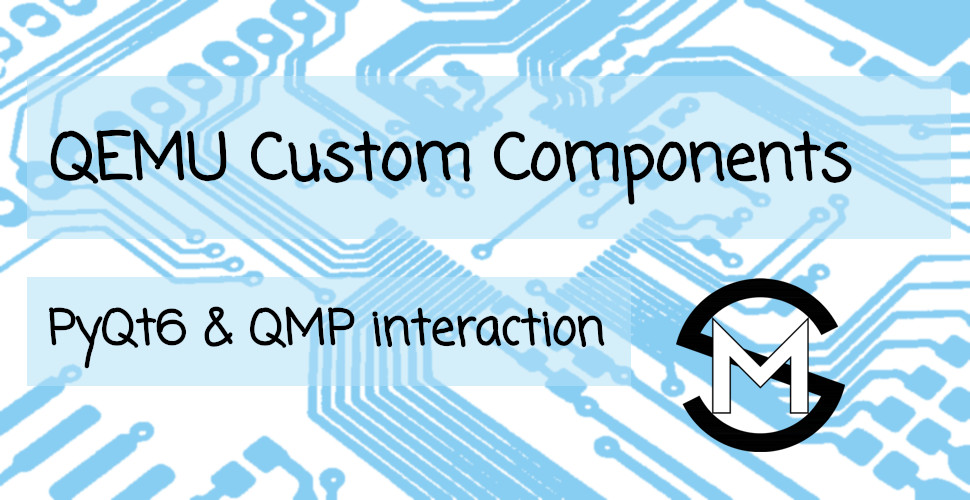- 14 Dec, 2025
Linux device driver for the custom SPI peripheral in QEMU
In the post on Linux driver for custom I2C device the overall structure of a Linux I2C device driver was presented. The character device and sysfs attributes creation were also covered. Similar can be done for the SPI custom component. In the original post SPI userspace driver was presented as C++ application (also as a Rust application). In this post creation of a SPI Linux device driver will be ...
- 14 Sep, 2025
Device Tree Overlay
Device Tree Intro In the embedded system various busses can be used to connect peripherals to the CPU (directly or indirectly): system/platform, I2C, SPI, UART, USB, PCI, etc. Some of these busses sup ...
- 06 Sep, 2025
Linux device driver for custom I2C peripheral in QEMU
In the I2C custom component post a new QEMU I2C peripheral was shown. Additionally, a C++ application (also Rust application) that can be used to interact with the peripheral from userspace was shown. ...
- 05 Aug, 2025
Using QEMU UART interface
In the posts so far on the MistraSolutions blog I have covered different peripherals and interfaces used in embedded systems: I2C, SPI, USB. One of the important interfaces that was not covered so far ...
- 02 Aug, 2025
QEMU custom peripheral properties
In the QEMU TMP105 QMP interaction newsletter the interaction with an emulated QEMU component via QMP and properties was shown. Using Python and QMP it was possible to change the temperature that the ...
